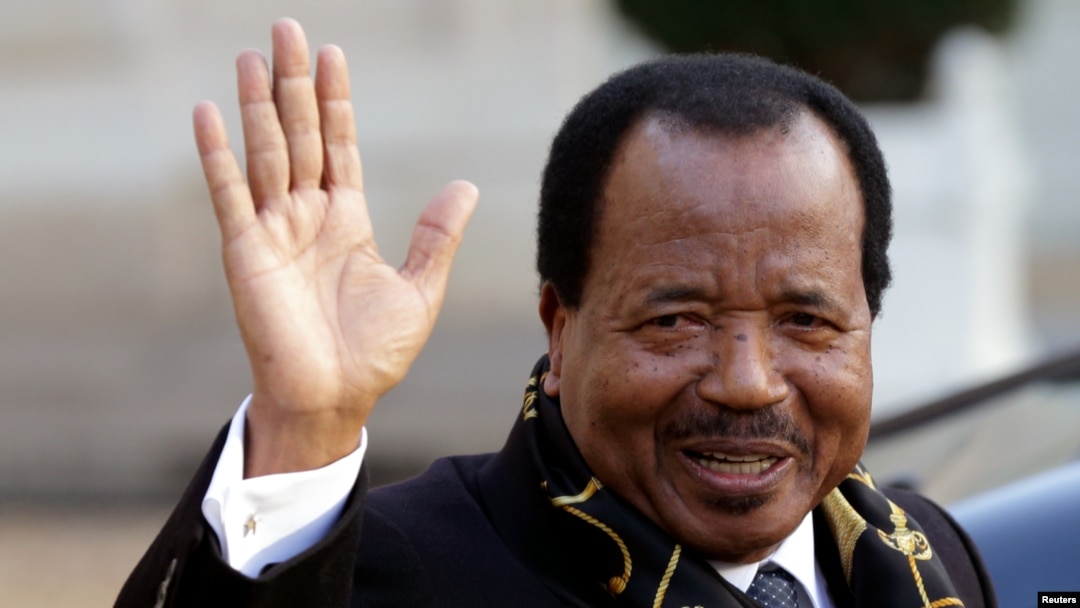Human rights groups and opposition lawmakers in Cameroon are protesting a new draft law which makes terrorism punishable by death. The government says the move is necessary to deter collaboration with militant groups like Boko Haram - which has been recruiting and terrorizing communities along Cameroon’s border with Nigeria.
The draft law was passed the first week of December.
Critics say the law could lead to abuse and threatens human rights.
Forbi Nchinda of the opposition's Social Democratic Front called the law outdated, coming at a time when many countries are abolishing capital punishment.
"The whole world is moving away from the death penalty. Now they are using the death penalty for people who are accused of terrorism. That is unacceptable the world over. Even in Cameroon, I don't think for the past 20 years anybody has been executed because the tendency has been to move away from the death penalty," said Nchinda.
Capital punishment was already legal in Cameroon for cases of treason or murder, but there has not been an execution since 1997 according to Amnesty International.
So what really concerns opponents is the wording of the new law, which they say is too broad and could be used to stifle political dissent of President Paul Biya’s three-decade rule.
The legislation defines acts of terrorism as threats which cause death, physical harm, material damage, intimidation of the population, provoking fear or disturbing public peace.
Ndi Richard Tantoh, of the non-governmental organization Ecumenical Service for Peace, is one of the worried critics.
"From every indication, the liberty of individuals to express their frustration with government action will be reprimanded with a heavy hand and accusing people of crimes against the state and capital punishment," said Tantoh.
Cameroon has a history of squelching opposition. In 2013 Transparency International cited Cameroon for using the criminal justice system to harass and silence political critics. Presently, President Biya has jailed a dozen former ministers.
Some critics see this law as perhaps a reaction to what happened in Burkina Faso in October, when a popular uprising ousted President Blaise Compaore. Compaore fled the country after 27 years in power.
Ndansi Elvis, youth president of the opposition political party National Union for Democracy and Progress, sees parallels.
"Of course it is clear. The people of Burkina Faso stood against their leader and they said we don't want Blaise Compaore because he wants to change the constitution and stay in power and they succeeded. So our own leader who has been in power for over 32 years wants to make sure that such a thing never happens in his country and this is just a psychological way to discourage people from going to the streets," said Elvis.
Media in Cameroon - already under pressure - are also expressing concern about specific provisions in the bill - which criminalize reporting on terrorism in certain cases with up to 15 years in jail. More than half a dozen journalists in recent months have been banned from reporting by the government due to allegations that they possessed sensitive information or that their work could destabilize the country. That is why some reporters, like Ben Collins Nyuyberiwo, see this new terrorism law as another tool to intimidate government critics.
"I don't believe they are handling terrorism in this aspect. For example, they are talking about Boko Haram. Boko Haram is not a Cameroonian issue. I think they should be targeting foreigners who are trying to infiltrate our system to destabilize Cameroon and not journalists I believe have nothing to do with this aspect. They have to do their job. They have to report, they have to inform the citizens," said Nyuyberiwo.
While Boko Haram may technically be a foreign issue, the Nigerian militant group has been increasingly terrorizing Cameroonian towns along the Nigerian border, which stretches for hundreds miles. Boko Haram - which is fighting to create a caliphate in northern Nigeria - has been using Cameroon as a staging ground, stealing supplies and kidnapping and murdering residents. Even more worrying to Cameroonian authorities are Boko Haram’s new attempts to recruit young people to fight for them.
Enwi Francis, a lawmaker with the ruling CPDM political party, said the law is meant to be a powerful deterrent.
"If you see what Boko Haram is doing, kidnapping children. If you imagine your own daughter being kidnapped and taken to another destination and you don't know what is happening to her. Your own wife being picked up in that way. Those are threats to the nation. People coming into schools and start shooting children. They deserve something. You can't kill and go free," said Francis.
All 148 lawmakers in President Biya's ruling CPDM in the 200 member national assembly voted in favor of the bill while 86 of the 100 CPDM senators also voted to pass the legislation. It will become law when the president signs the bill, which is expected in the coming days.


